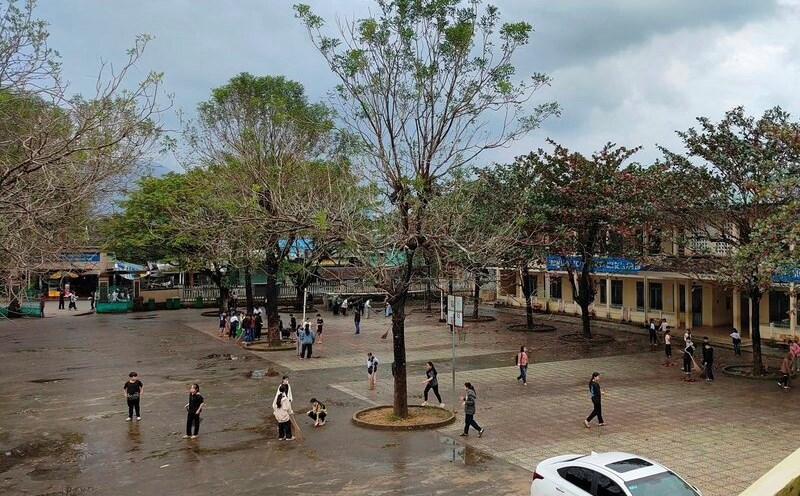According to Mr. Le Minh Tuan - Director of the Department of Home Affairs of Binh Dinh province, the whole province currently has 155 commune-level administrative units. After implementing the arrangement according to the Central Government's policy, this number will be reduced to 58 units, including 41 communes and 17 wards.
The arrangement of commune-level administrative units aims to promote potential and advantages, expand development space of localities, ensure that commune-level authorities effectively manage the area, grasp the situation, be close to the people, close to the people and serve the people.
"Previously, the development of additional space in 155 communes, wards and towns encountered many difficulties, especially in terms of natural resources and human resources. When merging with 58 commune-level administrative units, the space will be better promoted, and this has been carefully studied and calculated by the province," said Mr. Tuan.

The Director of the Department of Home Affairs of Binh Dinh province cited that in Tuy Phuoc district - the locality plans to merge 5 commune-level administrative units in the core area into a new commune. Each commune has its own strengths such as industry, agriculture... the merger will help harmoniously combine these advantages, creating favorable conditions for development of space.
Along with the rearrangement of administrative units, Binh Dinh province will also reorganize work in the apparatus of the People's Committees at the commune level in a modern direction, especially promoting the application of science - technology and digital transformation in handling work.
"Currently, Binh Dinh has trained virtual assistants - AI. However, because it is in the process of merging and arranging, the implementation of this technology application will be implemented after the organization work is stable," said Mr. Tuan.
According to the Director of the Department of Home Affairs of Binh Dinh province, putting the virtual assistant into operation will help commune-level cadres quickly solve administrative tasks, instead of having to consult manually or spend time reviewing documents as before. People can also use AI to support online public services, reducing dependence on officials and civil servants.
However, to maximize AI efficiency, provincial agencies must continuously update and supplement data to ensure the system is always accurate and timely, avoiding outdated conditions, leading to errors.
"The province will focus on training, improving the quality and restructuring the contingent of cadres, civil servants and officials, especially the leadership staff, to meet the work requirements in the new period.











